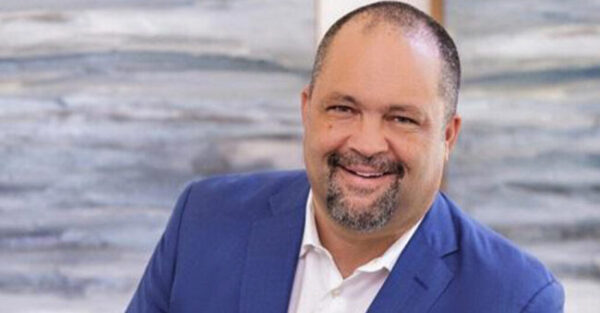| Ben Jealous |
| At a Virginia estate that shaped civil-rights history, an unlikely conservative keeps bipartisan hope alive By Ben Jealous The world of our screens has many of us dreading Thanksgiving. The things old friends and family members post on social media convince us in an instant that they’ve lost any semblance of sanity. But time in person quickly reminds us that we actually love them and still have far more in common than we don’t. Today’s media makes me long for the leaders who once shaped our public discourse before social media and 24-hour news seemingly distorted it beyond repair. As Congress grows louder and louder with increasingly extreme declarations—threatening another shutdown after the recent crisis already shuttered agencies and disrupted vital food support for poor families—I find myself missing Jack Kemp more than ever. As a Democrat, I miss Kemp most of all because he was a Republican who believed that fighting poverty and protecting civil rights were American obligations—even when his party didn’t have much appetite for either. When I became the youngest president in the history of the NAACP at 35, the first assignment our then-chairman Julian Bond gave me was to go meet Jack Kemp. I must admit I was a little baffled as to why I was being sent to meet with a Republican so quickly—let alone one who was no longer in office. Bond explained he had personally tapped Kemp to co-chair a commission advising the NAACP on its future direction because lasting change demands bipartisan consensus, not just partisan warfare. Kemp made one request to me: “No surprises.” I kept my promise. And in him I found a creative problem solver and courageous ally. With Kemp’s encouragement, I repeatedly reached out to Republican leaders when I led the NAACP with great success: we abolished the death penalty in the first state south of the Mason-Dixon line, helped shrink prison systems in Georgia and Texas, and led a final push in a successful effort to restore voting rights for thousands of formerly incarcerated people in Virginia—each time with support from top Republicans willing to be courageous on civil rights. Still, Kemp had a special way of making his commitment to courage plain. Julian Bond once told me a story to explain why he trusted Kemp so deeply. During Kemp’s presidential run, Bond recalled, a reporter pressed him on how he could seek the Republican nomination while being described as a card-carrying member of the NAACP. Kemp didn’t hesitate. “I can’t help but care about the rights of the people I used to shower with,” he said. That level of candor—that shared investment in defending human decency regardless of party—is vanishing from American politics. Recently, 24-hour news had me all but convinced Kemp’s brand of compassionate conservatism had died with him. Then I visited Holly Knoll. There have always been political leaders who understood that beneath the noise, we share the same hopes. Jack Kemp was one of them. He found a kindred spirit in Kay Coles James, who shared his vision that free enterprise could lift all boats. James fondly remembers Kemp once declaring, “I am a Kay James Republican”—high praise from a man who rarely followed anyone else’s lead. Their unlikely alliance—a white quarterback turned politician and a Black woman who’d risen from Richmond’s housing projects—embodied America’s promise. Holly Knoll in Gloucester, Virginia, is where James keeps Kemp’s brand of conservatism alive. Built in 1935 by Robert Russa Moton—Booker T. Washington’s successor at Tuskegee and a man who rose from slavery’s shadow to advise five presidents—this York River estate became a secret strategy centre of the civil-rights movement. Under its 400-year-old oak, some have said Martin Luther King Jr. found inspiration for his “I Have a Dream” speech. In its rooms, Black leaders and white allies talked strategy for Brown v. Board of Education. Kay Coles James knows this history in her bones. As a child in Richmond’s housing projects, she spent summers at Holly Knoll when wealthy relatives brought her to experience what was possible. While public pools barred Black children, Holly Knoll’s pool welcomed them. When James purchased the crumbling property in 2005, she wasn’t simply saving real estate—she was preserving an approach that’s increasingly rare. Through her Gloucester Institute, she champions what Kemp called “bleeding-heart conservatism”: market solutions with moral purpose, enterprise with empathy. Kemp would have smiled seeing his friend transform Holly Knoll into a laboratory for the ideas they’d championed together. I imagine Booker T. Washington would’ve smiled as well. Like Kemp, James speaks uncomfortable truths: civil rights matter to all of us; the Black community must work with allies across ideological lines. Her candor matches Kemp’s locker-room honesty—rooted not in calculation but in lived experience. During the Obama years, while others in her party sought the harshest soundbite, James says she never publicly condemned the president—not because she agreed with his policies, but because she held to an old tradition: Black people stand together when glass ceilings shatter, even across ideological lines. This costs something in today’s Republican Party, where the Kemp wing—focused on enterprise, skills development and home-ownership—is increasingly eclipsed by voices offering grievance over solutions. Yet Holly Knoll endures as both refuge and reminder. Here, practical solutions matter more than political theatre. Here, Kay Coles James proves that conservatism at its best doesn’t defend the castle—it extends the drawbridge. No surprises. Just the steady work of making America’s promise real for everyone. The kind of work that reminds us, when we meet face-to-face rather than screen-to-screen, that we’re all still trying to solve the same kitchen-table issues for our families and our nation. That’s the Holly Knoll way. That’s what Kemp believed. That’s what America needs another helping of now—especially at Thanksgiving. Ben Jealous is the executive director of the Sierra Club, a Professor of Practice at the University of Pennsylvania, and former national president and CEO of the NAACP. |


